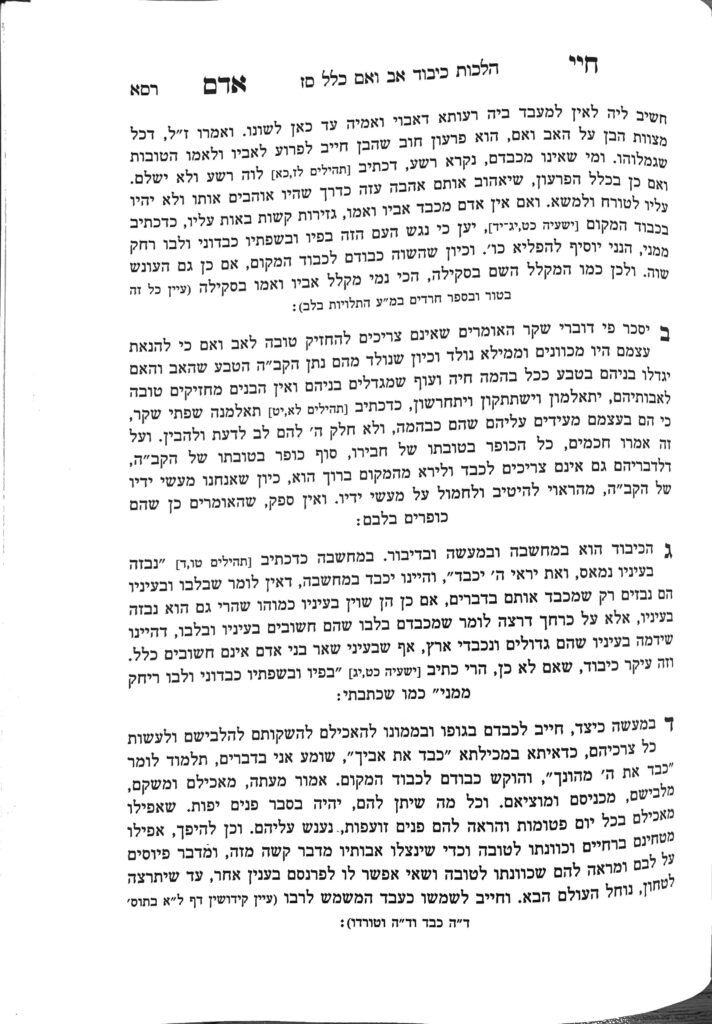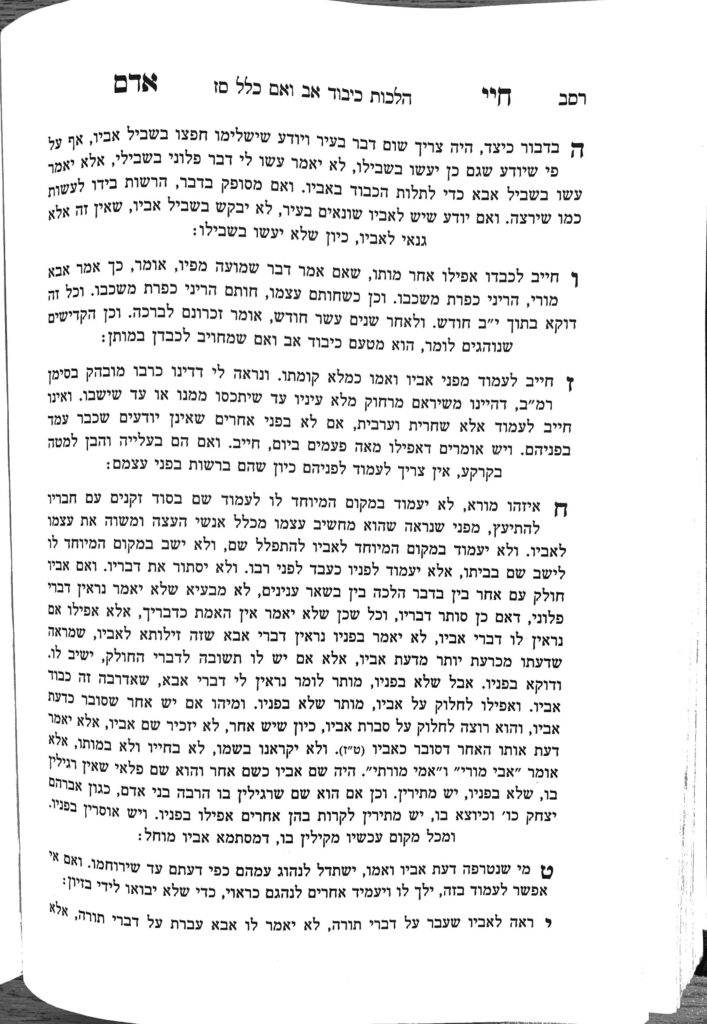We are continuing in siman 4. We learned that kavod to parents includes, but is not limited to, feeding them, giving them to drink, helping them get dressed, and helping them go in and out. The Chayei Adam writes that, in addition to these examples of kavod, a child should serve their parents like a servant serving their master.
Practically speaking, some contemporary examples of demonstrating kavod towards one’s parents include shopping for them, cleaning for them, serving them food or drink, and helping them pay their bills. These are all examples of helping with functioning, which is a way of giving them kavod. The examples given by the Chayei Adam have the additional benefit of demonstrating humility and subservience to the parents, but all contemporary examples are certainly a display of kavod as well.
The Chayei Adam will discuss the chiyuv to stand up for a parent in siman 7.
Included in kavod b’maaseh (demonstrating kavod through actions) is calling and visiting parents, and generally keeping in touch with them. Similarly, if a parent is concerned about the child in a particular situation, the child has a chiyuv to be in touch with the parent to ensure the parent is not worried.
The concept of hiddur mitzvah applies to kibud av v’eim, as it applies to all mitzvos. Thus, for example, when writing a letter to one’s parents, it is a hiddur to use better paper, and so on.
In siman 5, the Chayei Adam discusses how one demonstrates kavod for their parents through speech. He writes that if a child needs something taken care of, if people will take care of it equally for the son’s sake or the father’s sake, one should ask that it be taken care of for the father’s sake. If they will not respond as well to being asked in the name of the father, it may be a bizayon to ask in his name, because it shows that the father is not respected. One should use their discretion.
Summary
- Contemporary examples of demonstrating kavod towards one’s parents include shopping for them, cleaning for them, serving them food or drink, and helping them pay their bills. Keeping in touch, especially when a parent is concerned, is kavod as well.
- Demonstrating kavod through speech includes asking that things be taken care of for the father’s sake. However, one should only make such a request in situations where they know it will bring kavod to the father.
- Hiddur mitzvah applies to kibud av v’eim.




